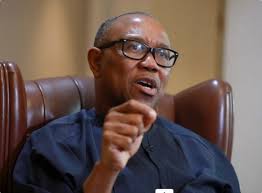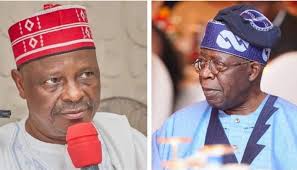
Seven governors displaced by paperweight opposition candidates
ADELANI ADEPEGBA writes on the inability of seven state governors to withstand the onslaught of the opposition candidates in the just general elections
The March 18 governorship and state assembly elections have been won and lost but the shocking outcomes of the exercise would continue to tickle bookmakers for years to come. Some governors who contested the election lost to the opposition members, while anointed candidates of a few others were defeated.
The All Progressives Congress lost Lagos State, the stronghold of its presidential candidate, Bola Tinubu, to the Labour Party standard bearer, Peter Obi.
But while the Lagos State Governor and APC candidate, Babajide Sanwo-Olu, was able to rally support for his re-election which he won resoundingly, some governors lost their states as they were overwhelmed by the opposition candidates.
For Governor Bello Matawalle of Zamfara State, the declaration that he lost the March 18 election to the opposition Peoples Democratic Party candidate, Dauda Lawal must have shocked him to the marrow.
But the Independent National Electoral Commission said Lawal who amassed 377,726 votes defeated Matawalle of the APC who polled 311,976. Interestingly, Matawalle became governor under the PDP before he defected to the APC.
In Kano, Governor Umar Ganduje’s dream of handing over power to the APC governorship candidate, Yusuf Gawuna faded away like the morning dew kissed by the sun. Abba Yusuf of the New Nigeria Peoples Party was declared the winner of the polls. Not only that, the party also secured 17 out of the 24 House of Representatives seats in addition to a high number of state assembly constituencies.
The NNPP was led by a former Kano state governor, Rabiu Kwakwanso. The INEC returning officer, Ahmad Ibrahim, announced that Yusuf won the election with 1,019,602 votes, while Gawuna who is the current deputy governor got 890,705 votes.
Yusuf had contested against Ganduje in 2019 in what was regarded as a very controversial election, which went into supplementary polls in 28 out of the 44 local government areas in the state. At the end of the first election, Yusuf was leading Ganduje with 26,655 votes. Yusuf, who was at the time the PDP candidate polled 1,014,474 votes while Ganduje got 987,819 votes. Ganduje eventually won by scoring 45,876 votes while Yusuf amassed 10,239 in the supplementary polls.
The Kwankwasiyya movement supporters celebrated the NNPP’s victory, defying the dusk-to-dawn curfew imposed by the state government to prevent an outbreak of violence following the tension generated by the election outcome.
For the APC family on the plateau, this is not the best of times, having lost power to the opposition PDP which was displaced from the Government House by the APC in 2015 after ruling the state for 16 years.
Despite Governor Simon Lalong’s best efforts to install his anointed candidate, Dr Nentawe Yilwatda as his successor, PDP’s Caleb Mutfwang emerged the governor-elect. He garnered 525,299 votes to defeat the rival APC candidate, who had 481,370 votes. According to the results, the PDP won in 10 LGAs while the APC triumphed in seven. Lalong, Director-General of the APC Presidential Campaign Council equally failed to win the Plateau South Senatorial District seat. He was trounced by PDP’s Bali Napoleon, who received 148,844 votes to the governor’s 91,674.
It was a double loss for the Benue State Governor Samuel Ortom. His senatorial aspiration failed to fly; he also failed to sustain the PDP’s hold on the power in the state. Before the election, pundits had bet on APC’s Rev Fr Hyacinth Alia winning the governorship polls. True to predictions, the cleric defeated the PDP candidate, Titus Uba to emerge the winner of the election. The development marked the second time a Catholic priest will emerge the governor of Benue State since it was created in 1976.
The priest scored 473,933 votes to defeat Uba who had 223,914 votes and the Labour Party candidate, Hemma Hembe, who secured 41,841 votes. With this development, Ortom may be one step away from political oblivion.
The same political storm that swept off Ortom also eclipsed Governor Aminu Tambuwal’s plan of keeping the PDP in power in Sokoto State. The PDP candidate, Saidu Ubandoma, was no match for Ahmed Sokoto, his nemesis, who won the polls.
The governor-elect, an ally of a former governor of Sokoto State and sitting senator, Aliyu Wamakko, was the deputy to Tambuwal during his first tenure between 2015 and 2019. In 2019, he contested against Tambuwal, a member of the PDP, and lost with a close margin of 342 votes after a re-run.
In Abia State, Enyinnaya Abaribe of the All Progressives Grand Alliance made mincemeat of Governor Okezie Ikpeazu’s bid to retire to the Senate like some of his fellow governors. While he was still trying to come to terms with this, the LP snatched the control of the state from his party, the PDP, as Alex Otti was declared the governor-elect.
Other bigwigs whose political careers were aborted include Governor Ifeanyi Ugwuanyi of Enugu State who was defeated in his race for the Senate by Okechukwu Ezea of the Labour Party; Governor Darius Ishaku of Taraba State who lost the senatorial election to David Jimkuta of the APC as well as Kebbi governor, Abubakar Bagudu. He succumbed to Adamu Aliero of the PDP in the Kebbi Central Senatorial District election.
In Yobe, the Speaker of the state House of Assembly, Ahmed Lawan, lost his seat in the assembly to Lawan Musa, a 34-year-old candidate of the PDP, for Nguru II Constituency. The Returning Officer for the election, Dr Habib Muhammad said Musa scored 6,648 votes to defeat Lawan of the APC who got 6,466 votes. Lawan, who hails from Majakura village in Nguru LGA, had contested for the councillorship ticket for Majakura Ward in 2021 on the platform of the APC but lost.
Later on, he was arrested and detained by the security agencies thrice for criticising the speaker on Facebook. After he regained his freedom, Majakura residents reportedly asked Musa to challenge the speaker at the polls. He heeded their call and secured PDP’s ticket. The rest, as they say, is history.
The Yobe speaker was not the only one who bit the dust. His colleague in Zamfara State House of Assembly, Speaker Nasiru Magarya and his deputy, Musa Bawa Yankuzo, were both defeated by the PDP candidates in the state.
The returning officer for the Zurmi West Constituency election, Ismail Moriki, declared Bilyaminu Ismail as the winner of the election in the speaker’s constituency. Ismail polled 11,213 votes to defeat Magarya who garnered 9,530 votes. In the same vein, the deputy speaker, Yankuzo, lost his re-election bid to the PDP’s Bello Mazawaje, who scored 21,197 votes ahead of Yankuzo’s 13, 820 votes.
The senator representing Enugu East in the National Assembly, Chimaroke Nnamani equally lost his bid to return to the National Assembly. He was dusted by the Labour Party candidate, Kelvin Chukwu. Kelvin’s victory was apparently made possible by the cruel murder of his brother who was the senatorial candidate.
But Nnamani, a former Enugu State governor, blamed the LP presidential candidate, Peter Obi for his loss, accusing him of playing ‘’wicked and dangerous politics.’’ Following his loss, the former senator defected to the APC with his supporters.
Commenting on the elections, the President, Major General Muhammadu Buhari (retd.), expressed sadness that some candidates, especially those of the APC, lost their bid.
“I am unhappy that some candidates lost in the election. But I am inspired by the fact that voters were able to make their own decision, to decide who won and who lost,” Buhari told the outgoing United States Ambassador to Nigeria, Mary Beth Leonard, at the State House, Abuja.
Reviewing the polls, a former Secretary General, Arewa Consultative Forum, Anthony Sani, attributed the wave of losses by incumbents and other experienced politicians to heightened political awareness among the electorates.
He stated, Displaced by upstarts: Govs, others lose to opposition candidates.
Punch





